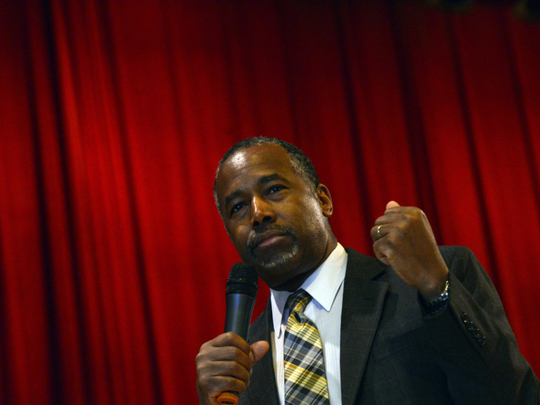
Whenever a Republican candidate vanishes from the national stage, as Lindsey Graham did on Monday, professional and armchair pundits give in to the urge to discuss how the absence will re-shape the race, because it almost feels like this sort of disappearance has to. People will notice, and the plot will change, right? Well, it’s time to resist that impulse, because it won’t.
Under normal circumstances, it would be nice if Graham’s departure inspired a few other candidates to slink from the diners of Iowa and New Hampshire and allow us to witness a showdown amongst a limited roster of “serious” contenders so we can have a serious political discussion. This assumes the latter is even possible and that the candidates desire it any more strongly now than they did when Wisconsin Governor Scott Walker exited the race and made that direct appeal.
Circumstances have intervened to blunt whatever efficacy Graham’s voice had. Once you remove his refreshingly clear-eyed statements on immigration or marriage equality that Lucia Graves singled out, you’re left with someone who’d take the Zoltar machine from the film Big and wish to be a multi-front ground war.
That might have been uniquely bellicose before the Paris terror attacks, but now it’s very close to Republican standard issue.
Apart from his handful of heresies, which the Republican faithful have zero interest in, his biggest selling point doesn’t substantially differ from the rest of the field. Between that and his losing poll after poll to the margin of error, it’s difficult to see what incentive any candidates would have to follow him.
Ultimately, this is the root logic at work: if almost all candidates represent an undifferentiated menu of conservative ingredients — a choice of Big Mac, Big Mac, Big Mac... or Big Mac — there’s no reason to assume that voters might not stop liking a candidate very similar to you and choose you instead. All it takes is a flub or a catastrophe or something. Ride it out. The moment you become the premium menu option could be just around the corner.
Graham leaves behind an almost wholly unchanged field of candidates, many of whom may never have the numbers to capitalise on Graham’s friends’ endorsements in the South Carolina primary, and all of whom only marginally differ from one another. Aside from demographic slicing, this is why Marco Rubio and Ted Cruz have been battering each other over small distinctions on immigration: that’s how tiny the margins are.
Moreover, it’s not as if a political conversation among a few candidates is apt to get much more refined. With every candidate offering a slate consisting of varying degrees of anti-immigration and anti-Islam rhetoric, military interventionism, tax and social programme cuts, environmental contempt and a toxic stew of religious ecstasy, Founding Father idolatry and disregard of women’s/LGBT rights, you’re looking at a change in the population of the echo chamber, not in the conversation in it.
With Ben Carson’s numbers cratering, what we’re left with is essentially a conversation between Trumpism and Everything Else. And even this distinction probably overstates the case. Donald Trump is the dark heart of conservative salesmanship, a louder but not fundamental deviation from it. The difference between Trumpism and the rest of the Republican Party is basically 10 beers. It’s the difference between you at your son’s football game and you tailgating an Eagles game.
At best, Lindsey Graham’s departure exhibits a microcosm of the futility of a party whose own policies have superannuated itself. After pressing for so long to deregulate campaign financing, the party has enabled the creation of independent financial fiefdoms and autonomous campaign structures, from donors to data and down to the ground, none of which need the party to survive. In so doing, it has removed whatever policing arm it has left and made the loudest voice not an institution representing a set of policies but whomever has the biggest check and can buy the biggest amps.
Lindsey Graham tried his best, but he couldn’t get anyone to stop yelling, listen to him and get serious for a minute, because nobody has any reason to listen to him or anyone else. His two most dedicated groups of supporters are the night terrors of heterosexual life partner John McCain and Beltway journalists whose love of a good quote bears owes no allegiance to the passions of the conservative base. A third, South Carolina donors and friends, have over a month to hedge between allegiance to his interests and backing a winning horse in that state’s primary.
This is the way of the party now: an ungoverning and ungovernable shouting match of synonyms will go on uninterrupted, because a senior senator and a leading voice on a policy issue dear to the party just left, and it didn’t make a sound.
–Guardian News & Media Ltd










